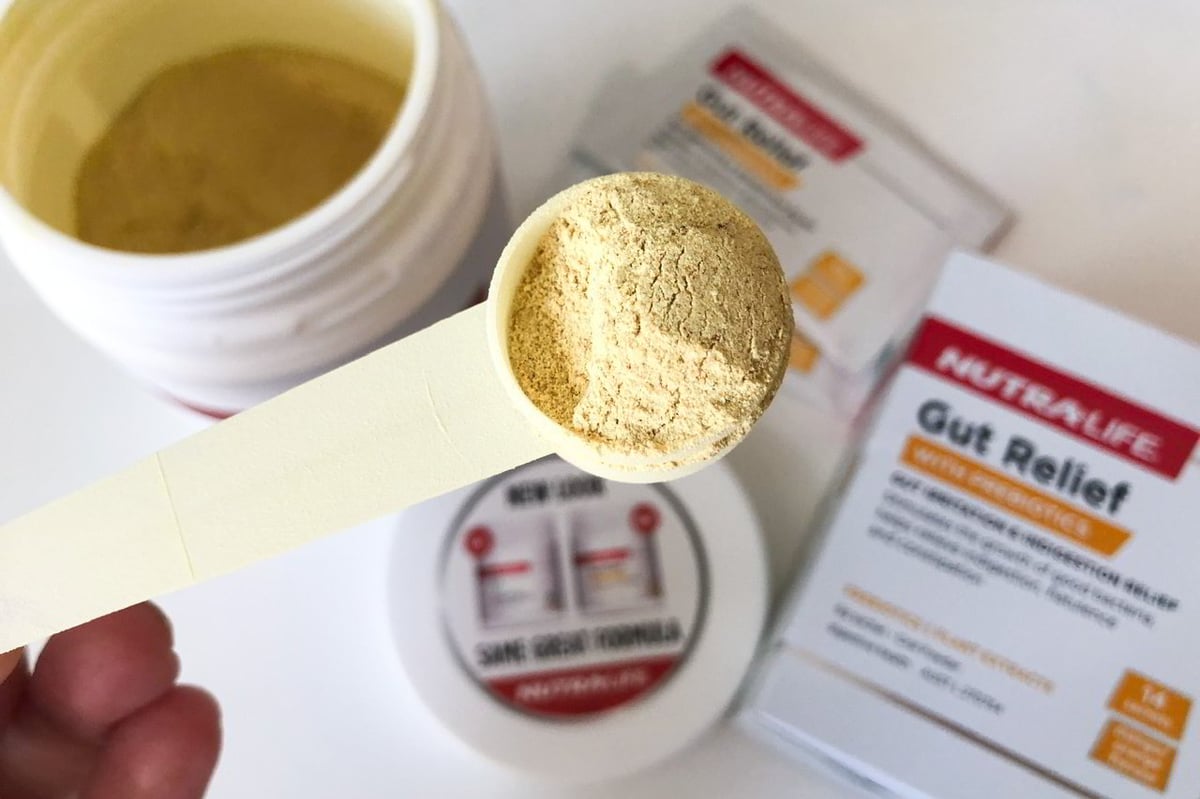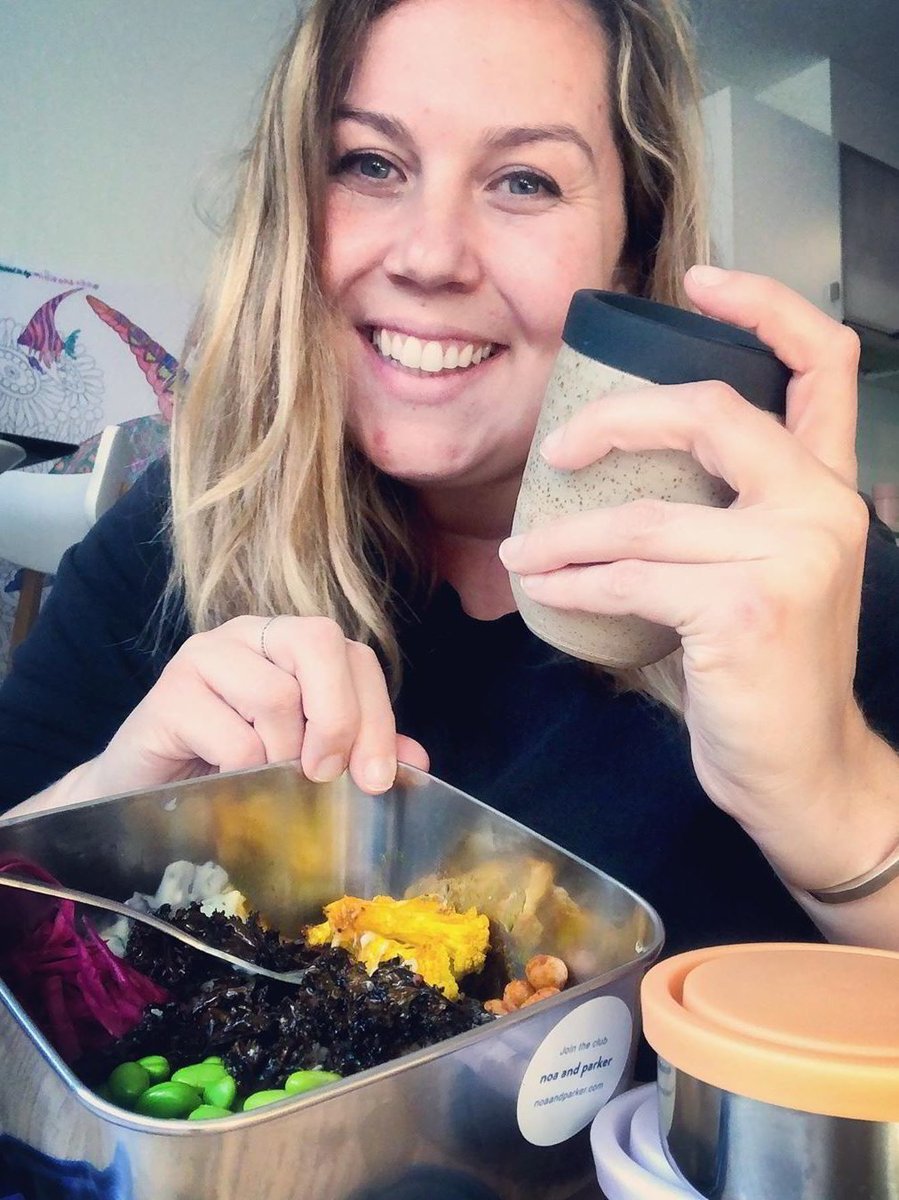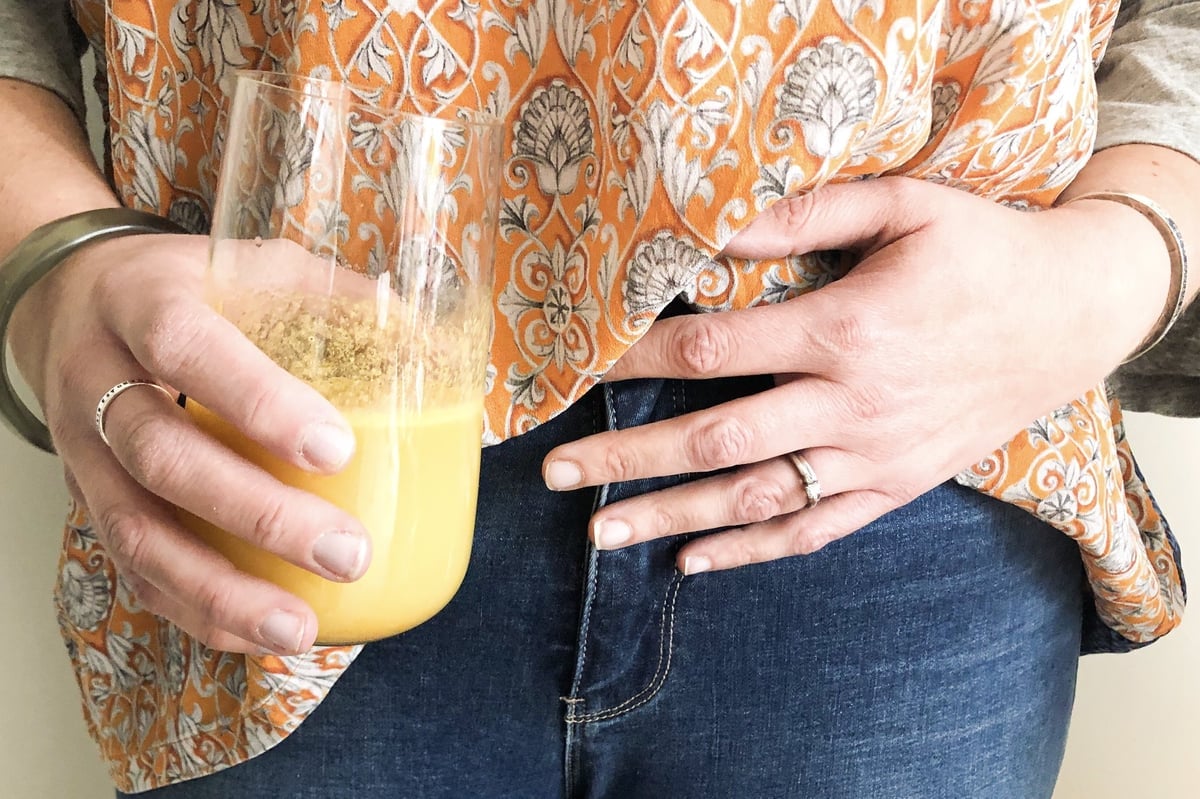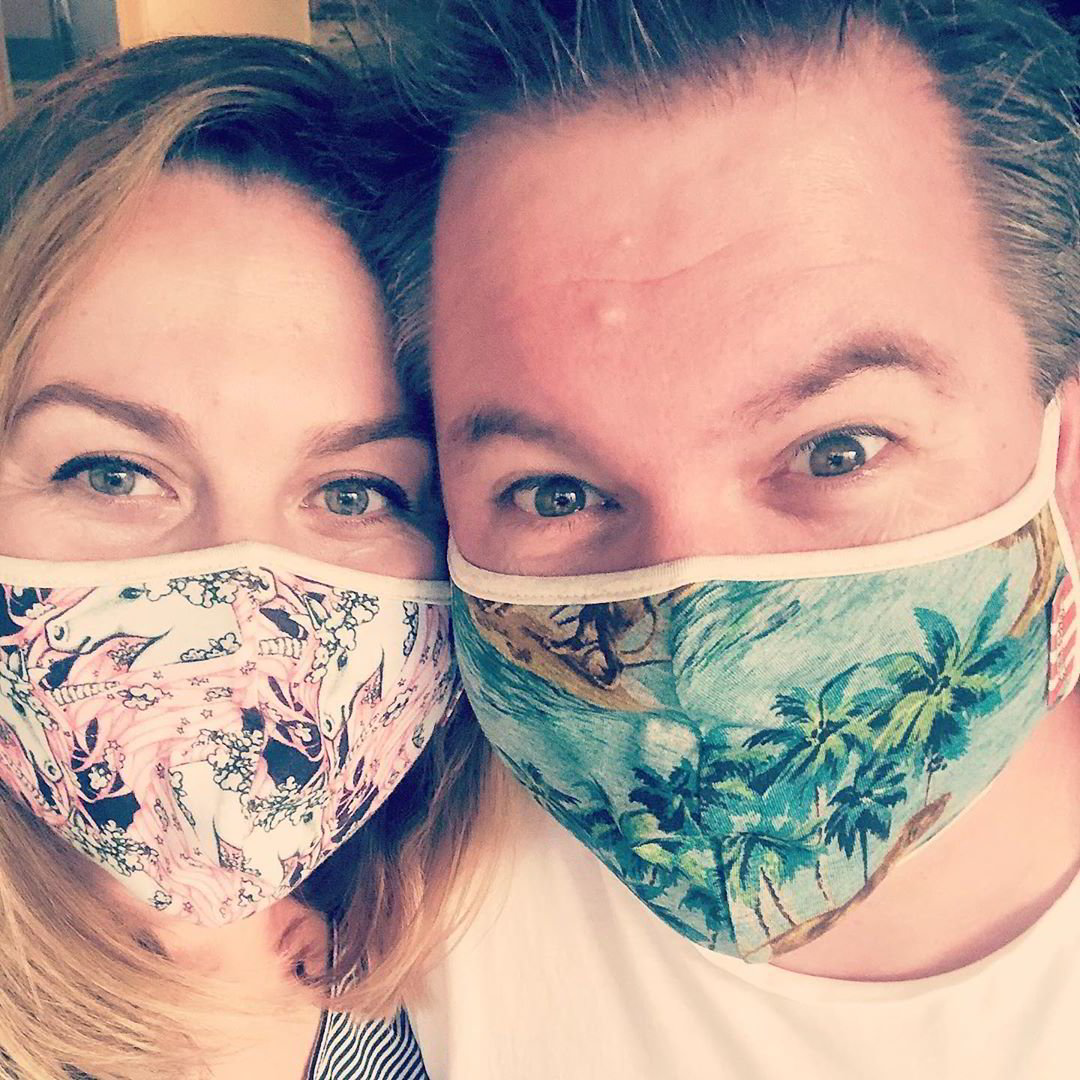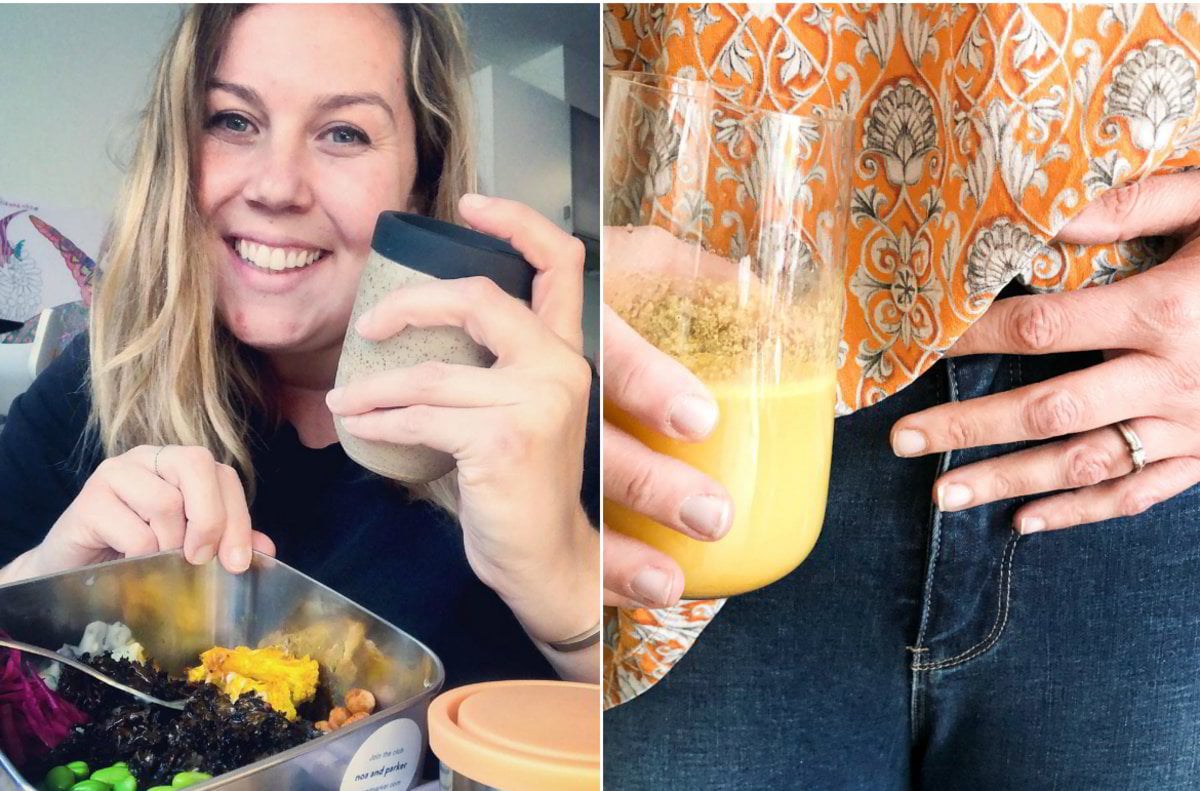
_1595221159725_1597646852543.png?alt=media&token=5df47a8e-8e15-4306-9db1-675cfb89d4ac)
I try to look after my body. I really do. I exercise daily. I eat a vegetarian diet and keep my alcoholic drinks to weekends (no mean feat, considering we're into our sixth month of pandemic lockdowns and restrictions here in Melbourne).
It's corny, but we only have one body and should treat it like the temple it is.
The thing is, most of my time, energy and money is spent on treating myself at the hair salon, beautician or at the cosmetics counter. I know the tummy troubles I experience could do with the same attention, yet I have largely ignored it. So many of us who suffer from symptoms directly related to poor gut health continue to just live with them. Not me, not anymore.
I decided it was my mission to try a few simple changes over two weeks to try and improve my gut. Here's what I tried, and how I went...
1. Keeping a digestion diary.
Think of it as a love letter to yourself. If you really want to find out the reason for your gut issues, a diary might help. Write down everything you eat, how you feel afterwards, your mood and even the frequency of your toilet visits.
An example of mine: "9.24pm. Netflix. Husband suggests we open the corn chips. Feel parched. Proceed to wash it down with iced coffee. Not best idea. Watch some TV and feel my insides squelching. Uh-oh. Really uncomfortable and try sitting up straight. Nope, not helping."
It was a lesson for me about which habits set my gut off, and what I could do to avoid them. When things are listed then it can clearly show any patterns and help you figure out how to avoid discomfort where possible. Take the diary with you when you visit your doctor too.

